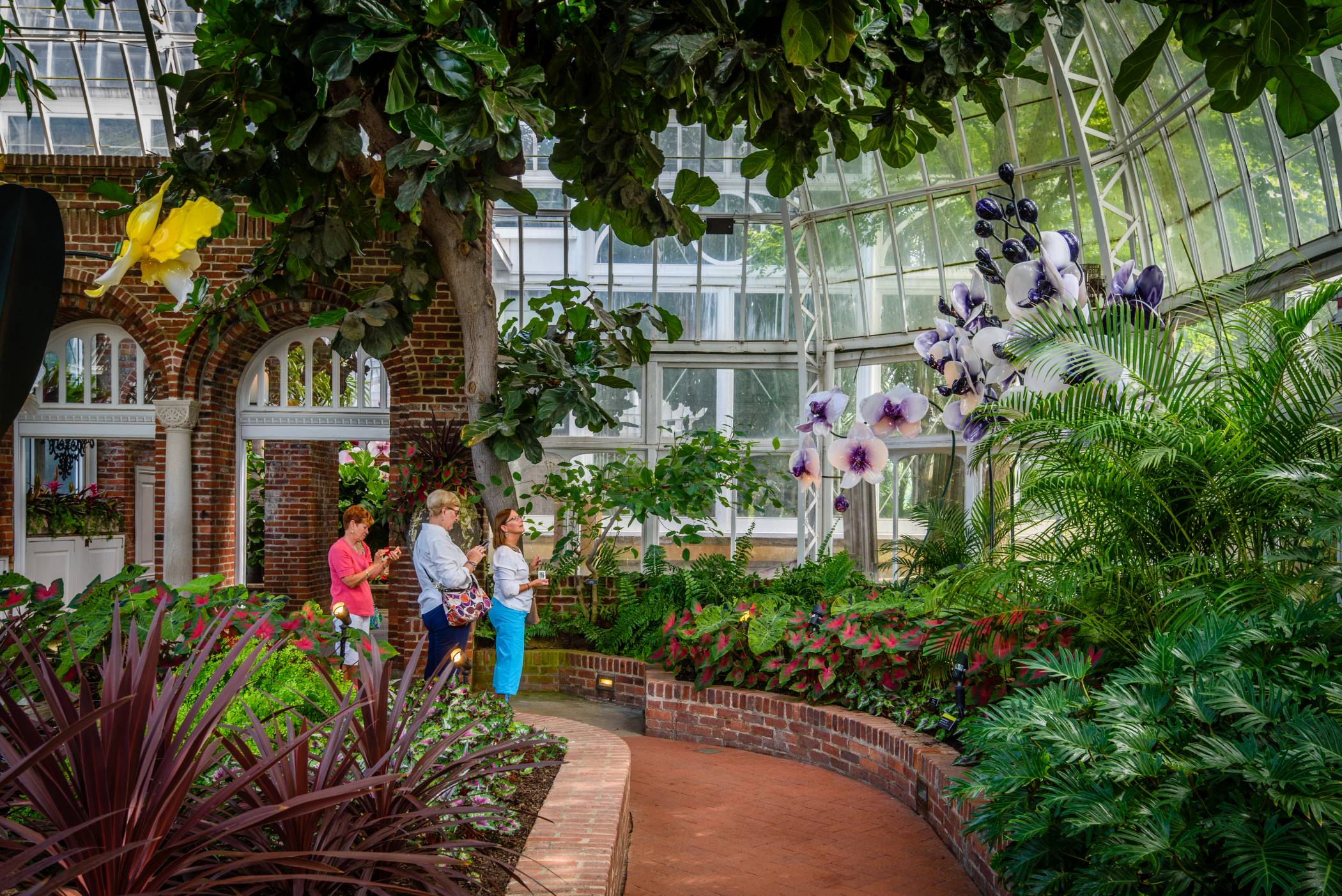
A key element of Phipps’ mission is to “inspire and educate all with the beauty and importance of plants,” and it all starts with gorgeous, unique and healthy specimens. Your support of Horticulture helps Phipps maintain its top rating as a world-class garden-conservatory, right here in the heart of Pittsburgh.
Phipps gets much attention for its amazing, ever-changing, seasonal flower displays and blockbuster exhibits — such as those by botanical glass sculptors Dale Chihuly, Hans Godo Fräbel, and Jason Gamrath — but it is also renowned as home to a number of remarkable permanent plant collections, from orchids and ferns to palms and cacti.
Designing the shows and caring for the thousands of species at Phipps is a team of trained horticulture specialists – curators for each exhibitory glasshouse room and collection. These university-educated experts understand the needs of every botanical beauty in our shows and collections.
“I am a naturalist,” says Curt Pesanka, Phipps’ Indoor Display Foreman who has over 30 years of experience in growing and maintaining exotic specimens. “I think it’s important that the plants be displayed as you would see them in their natural places of growth.”
With all of its plant varieties, Phipps strives to do this, but it is no simple task. For instance, in the Desert Room, plants from North America, Africa and Australia must cohabitate in a single room.
“Every specimen has its own needs,” says Curt.
This is why every display room at Phipps is tended by its own specialized horticulturalist who keeps the plants healthy and beautiful. Jennifer Davit, Curator of Horticulture, regularly assesses the health of our plants and looks for interesting, new plants that we can grow and display at Phipps. She is currently procuring specimens for our Tropical Forest: Cuba exhibit, which will open Feb. 10, 2018.
Greenhouse Foreperson Katie Werner explains Phipps’ sustainable approach to keeping our plants in optimum health.
“We strive to provide beautiful plants while applying sustainable practices through fertilizer, supplier and pest control choices,” says Katie. “We try to use more natural-based fertilizer rather than synthetic, and we practice integrated pest management," using innovative, environmentally safe methods.
With your support of our Horticulture program, Pittsburgh’s lush specimen collection under glass and curated outdoor garden-scapes will continue to thrive as a sustainable, world-class garden-conservatory far into the future.
